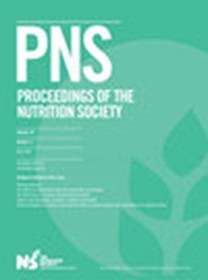胡萝卜摄入量、膳食/循环中的α-胡萝卜素与癌症风险之间的关系:前瞻性观察研究的系统回顾和荟萃分析
IF 4.5
2区 医学
Q1 NUTRITION & DIETETICS
引用次数: 0
摘要
在一些动物模型中,食用胡萝卜可减少肿瘤的发展。胡萝卜素的成分α-胡萝卜素本身并不具有抗癌特性,但胡萝卜通常提供了α-胡萝卜素膳食摄入量的85%(1-3),因此可以将其作为胡萝卜摄入量的指标(3)。我们进行了一项荟萃分析,以调查胡萝卜/膳食α-胡萝卜素摄入量与癌症风险之间的反向关系,并量化潜在的剂量-反应关系。我们检索了 PubMed、Cochrane Library、Web of Science、Scopus、EBSCO 和 JSTOR(从数据库建立之初到 2021 年 8 月)中报告胡萝卜摄入量或α-胡萝卜素与癌症风险之间关系的风险估计值及 95% CIs 的研究。在纳入的80项前瞻性研究中,15项(25738例)报告了胡萝卜摄入量数据,35项(26262例)报告了膳食中α-胡萝卜素的摄入量,30项(9331例)报告了血浆中α-胡萝卜素的水平。胡萝卜摄入量(RR = 0-90)、膳食α-胡萝卜素摄入量(RR = 0-90)和血浆α-胡萝卜素(RR = 0-80)均可明显降低罹患癌症的风险(P<0.01)。此外,胡萝卜摄入量和血浆α-胡萝卜素水平与癌症风险呈线性剂量反应关系,每周增加5份(400克)胡萝卜摄入量可降低20%的风险(p < 0-0001),血浆α-胡萝卜素连续增加50微克/升可降低11%的风险(p < 0-0058)。应鼓励人们食用胡萝卜,并进一步研究其成因机制。本文章由计算机程序翻译,如有差异,请以英文原文为准。
Relationship between carrot intake, dietary/circulating α-carotene and cancer risk: A systematic review and meta-analysis of prospective observational studies
Carrot consumption reduces tumour development in several animal models. The constituent alpha- carotene has not by itself shown anti-cancer properties, however carrots typically provide >85% of alpha-carotene dietary intake(1-3) , justifying its use as an indicator of carrot intake(3) . We conducted a meta-analysis to investigate inverse associations of carrot/dietary α-carotene intakes and cancer risk, and to quantify potential dose–response relationships.PubMed, Cochrane Library, Web of Science, Scopus, EBSCO, and JSTOR were searched (from database inception to August 2021) for studies reporting risk estimates with 95% CIs for the relationship between carrot intake or α-carotene and cancer risk. Meta-analyses were conducted using a random-effects model comparing highest and lowest intakes to estimate summary risk estimates (RRs).Of 80 prospective studies included, 15 (with 25738 cases) reported data on carrot intake, 35 (26262 cases) on dietary α-carotene intake and 30 (9331 cases) on plasma α-carotene levels. A significantly (P<0.01) decreased risk of overall cancer was associated with carrot intake (RR = 0·90), dietary α- carotene intake (RR = 0·90) and plasma α-carotene (RR = 0·80). In addition, both carrot intake and plasma α-carotene level manifested linear dose-response relationships with cancer risk, with increasing carrot intake reaching 20% risk reduction at 5 servings (400g) per week (p < 0·0001),and successive 50μg/L increments in plasma α-carotene associated with 11% risk reduction (p < 0·0058).Carrot consumption is robustly associated with decreased cancer risk. Carrot consumption should be encouraged, and the causal mechanisms further investigated.
求助全文
通过发布文献求助,成功后即可免费获取论文全文。
去求助
来源期刊
CiteScore
15.50
自引率
0.00%
发文量
190
审稿时长
6-12 weeks
期刊介绍:
Proceedings of the Nutrition Society publishes papers and abstracts presented by members and invited speakers at the scientific meetings of The Nutrition Society. The journal provides an invaluable record of the scientific research currently being undertaken, contributing to ''the scientific study of nutrition and its application to the maintenance of human and animal health.'' The journal is of interest to academics, researchers and clinical practice workers in both human and animal nutrition and related fields.

 求助内容:
求助内容: 应助结果提醒方式:
应助结果提醒方式:


